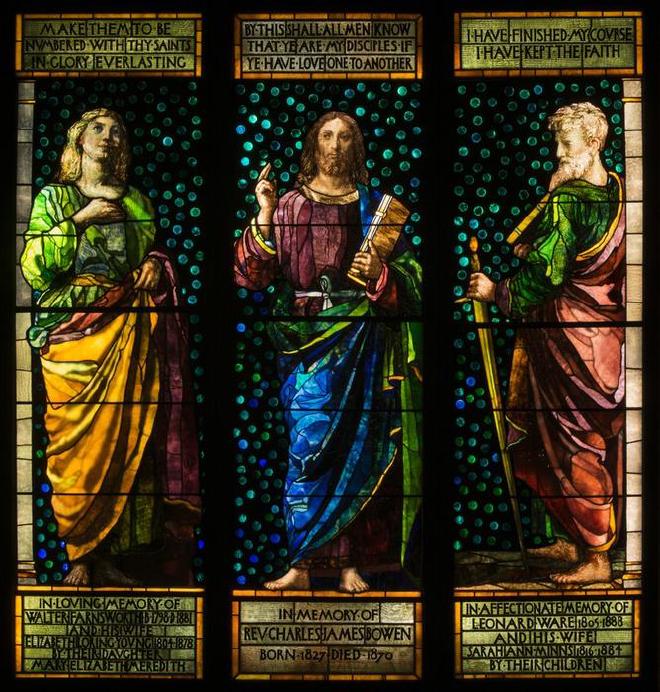

The findings hold implications for how Christians might help address climate change, knowing their beliefs about the climate crisis align with their church’s values, according to Boston College Assistant Professor of Psychology Gregg Sparkman, senior author of the study, published in the Proceedings of the National Academy of Sciences.
Yet roughly half the religious leaders have never discussed it with their congregation, and only a quarter have mentioned it more than once or twice, the survey found.
“Because of leadership’s silence on the matter, rank-and-file Christians think most of their leaders do not believe, and feel hesitant to even discuss climate change with their fellow churchgoers,” said Sparkman, who completed the study with Stylianos Syropoulos, a postdoctoral researcher at BC and now an assistant professor at Arizona State University.
“But, if you inform Christians that there’s actually a strong consensus among their religious leaders on the issue, they infer belief in climate change is more common in their church generally, feel taking climate action is consistent with their church’s values, and feel voting for a political candidate who fails to take climate action is inconsistent with their church’s values,” added Sparkman, who directs the Social Influence and Social Change Lab at Boston College.
Christianity is the prevalent religion in the United States, observed by 224 million people, or 67 percent of the population, according to a Gallup survey from 2023 The majority of Christian Americans are Protestant Christians.
Earlier research has examined the effects of informing people that there is consensus among scientists about climate change. But until now, it wasn’t clear whether there was a strong consensus among religious leaders, even though this group is very influential for many Americans, particularly those who may be skeptical of climate science, said Syropoulos.
Sparkman said there was an expectation that a large percentage of Christian leaders accepted that climate change exists and is driven by human activity, but learning that nine out of 10 leaders accepted the scientific consensus was surprising.
“We thought most religious leaders would believe,” said Sparkman. “But we didn’t expect just how high it would be. For instance, more than 80 percent of Evangelical or Fundamentalist Christian leaders believe in climate change and that humans contribute to it. We also thought religious leaders may self silence more in cases where their congregations were more conservative than they were, out of a fear of ‘rocking the boat’. But in fact, the self-silencing was pretty common whether or not religious leaders felt they had different political attitudes than their congregation.”
What’s next? #
Syropoulos and Sparkman agree that an important next step is to engage in greater research efforts highlighting that concern for climate change is high in religious groups in the US, with an emphasis on refining and disseminating such consensus beliefs to churchgoers across the country.
“We find that informing Christians that the majority of their religious leaders believe in man-made climate change leads them to realize that climate action is in line with their morals, and voting for politicians who deny climate change may be at odds with their faith,” Sparkman said. “Every year we see more droughts, fires, floods, and famines. Nine out of ten Christian leaders already believe we can do something about climate change. And if this truth gets out and they break their silence, it will help Christian Americans come to faith on this dire issue.”
- The paper Most Christian American Religious Leaders Silently Believe in Climate Change and Informing Their Congregation Can Help Open Dialogue was published in Proceedings of the National Academy of Sciences

